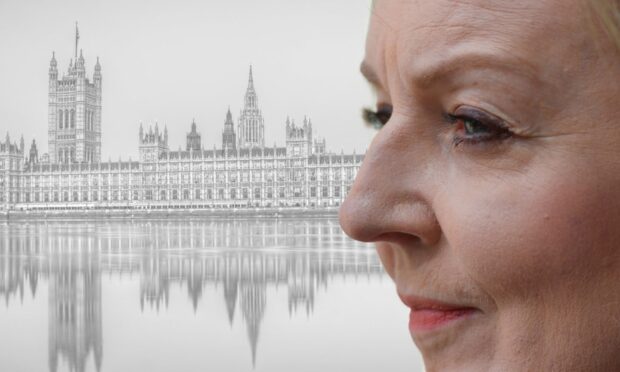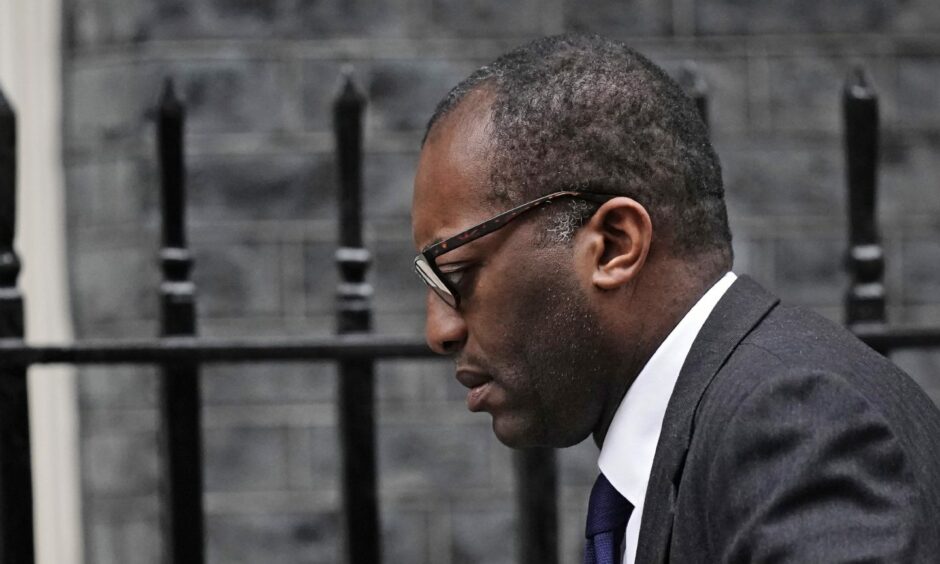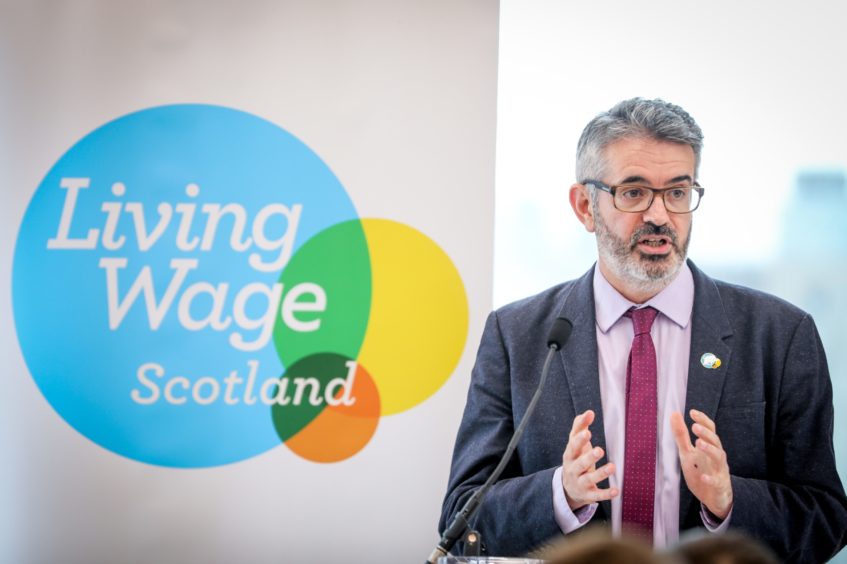It is almost one year since Liz Truss announced she was standing down as prime minister.
As the anniversary of her resignation speech approaches on Friday, poverty campaigners say the policies enacted by the shortest serving incumbent of 10 Downing Street are still being felt by Scotland’s poorest families.
Truss lasted just 49 days after vowing to transform Britain, famously being outlasted by a supermarket lettuce.
What went wrong?
Her £45 billion package of unfunded tax cuts and the promise of more to come sunk the pound, sent interests rates soaring and forced the Bank of England to prop up pension funds as the bonds market plummeted into chaos.
Truss was forced to scrap her entire economic programme and weeks later she was gone. One year on, some believe she could have a significant influence heading into the next general election.
Poverty Alliance director Peter Kelly says the economic policies brought in during her time as prime minister pulled hundreds of thousands more people into poverty.
“We need political leaders who act with justice and compassion to make sure every household has what they need to thrive and develop,” he said.
“Liz Truss fell short on that measure during her time as prime minister.
“Research from the Resolution Foundation suggests that her economic policies cost the UK economy around £30 billion, with the impact of that falling heaviest on people in poverty and on low incomes.
“The Joseph Rowntree Foundation forecasts that the resulting rise in interest rates pulled around 400,000 thousand people into poverty directly, and would have massive further effects as the cost of private rents increased.”
Kelly said it took the voice of hundreds of anti-poverty organisations coming together to convince Truss to abandon her plans not to raise social security benefits in line with inflations, which would have left even more people facing destitution.
Collapse in trust
Citizens Advice Scotland saw visits to their webpage ‘what to do if you can’t pay your mortgage’ increase year-on-year by 287% in the month Truss became prime minister.
Visits to their mortgage calculator – which can be used to work out monthly payments on an existing mortgage with varying interest – jumped by 223% between October and November. That represented a year-on-year increase of 1,530%.
Meanwhile, polling from Ipsos found the public’s trust in the Conservatives to manage the economy declined significantly during Truss’s time as prime minister and has never fully recovered.
Labour are reportedly planning to tell voters in the run up to the next election that if they vote for Rishi Sunak they will get policies influenced by Truss.
Last month, Labour posted a picture on X of Rishi Sunak in the pocket of his successor, alongside the caption: “We know who’s really in charge.”
‘Truss era doesn’t need to be revisited’
Scottish Conservative MSP Maurice Golden broke ranks during Truss’s tenure, describing her budget as extreme and indefensible.
He warns the Tories must not return to her policies.
“The Truss era speaks for itself and doesn’t need to be revisited,” Golden said.
“Rishi Sunak will know that and would be well advised to steer clear of those policies or influences.
“The party may be in a bit of a tough spot polling-wise, but we should resist the temptation to revert to that phase.
“It’s important to spend the next year looking forward and recovering our reputation for competence and strong economic policies.”




